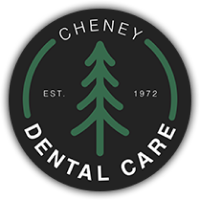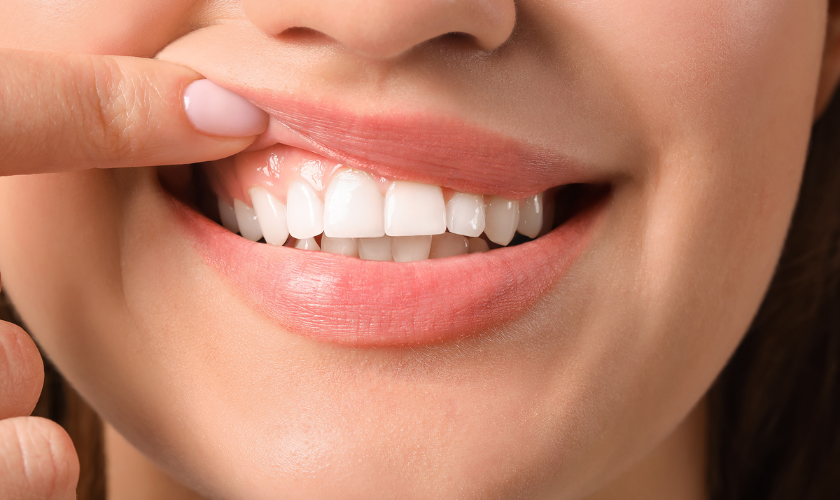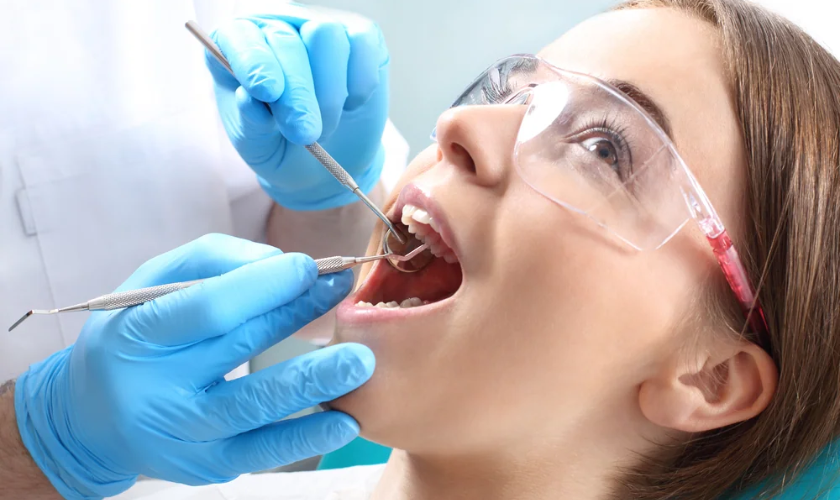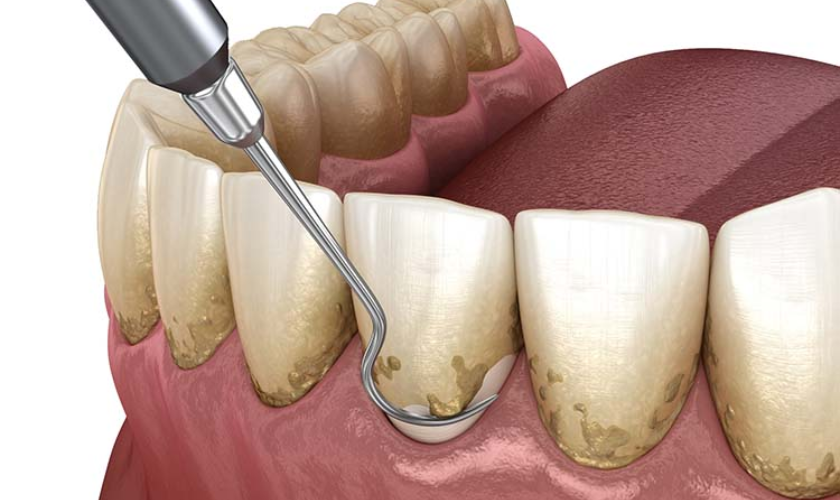Who Can Benefit from Periodontal Therapy?
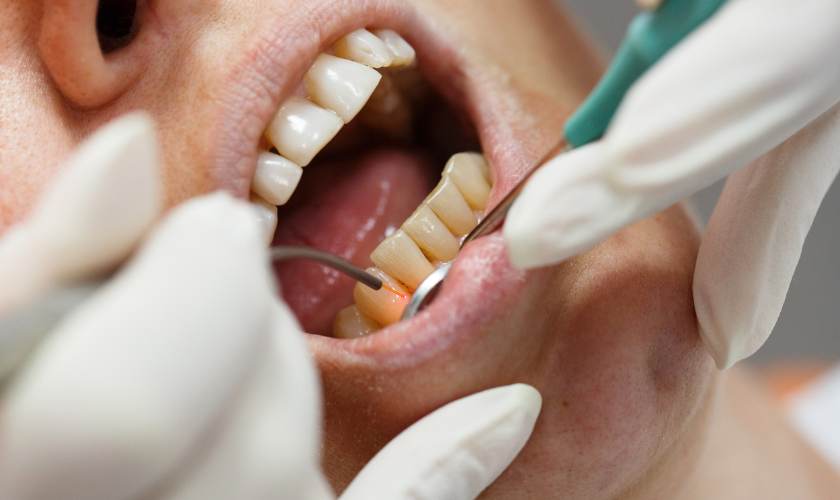
Picture this: a confident smile, healthy gums, and teeth that stand the test of time. Achieving this dream isn’t just about regular brushing; it’s about understanding the pivotal role periodontal therapy plays. Welcome to a journey that goes beyond oral care, where we unravel the mysteries of periodontal therapy and explore who can truly benefit from it.
What Causes Gum Disease?
Gum disease, also known as periodontal disease, is a common but preventable condition that can lead to serious oral health issues if left untreated. Understanding the causes of gum disease is crucial for maintaining good oral hygiene. Let’s delve into the primary culprits behind this prevalent dental concern:
Plaque Buildup: The leading cause of gum disease is the accumulation of plaque, a sticky film of bacteria that forms on teeth. If not regularly removed through proper oral hygiene, plaque can irritate the gums and lead to inflammation.
Gingivitis: Gingivitis is the initial stage of gum disease and is characterized by red, swollen gums that may bleed during brushing or flossing. Poor oral hygiene, allowing plaque to build up, is a common cause of gingivitis. Thankfully, gingivitis is reversible with timely intervention.
Poor Oral Hygiene Practices: Inconsistent or inadequate oral hygiene practices contribute significantly to gum disease. Neglecting regular brushing, flossing, and professional dental cleanings allows plaque and tartar (hardened plaque) to accumulate. As a result, it fosters an environment for gum problems to develop.
Tobacco Use: Smoking and the use of other tobacco products increase the risk of gum disease. Tobacco use weakens the immune system, making it harder for the body to fight off infections, including those affecting the gums. Additionally, smoking can hinder the success of certain gum disease treatments.
Hormonal Changes: Hormonal fluctuations, such as those during puberty, pregnancy, and menopause, can make gums more susceptible to inflammation. This increased vulnerability can lead to the onset or exacerbation of gum disease.
Poorly-Fitted Dental Appliances: Ill-fitting dental appliances, such as poorly fitted dentures or braces, can create spaces where plaque accumulates. This can lead to irritation and inflammation of the gums, contributing to gum disease.
Understanding Periodontal Therapy
Periodontal therapy is not just a singular dental procedure; it’s a comprehensive approach to combat gum disease and promote overall oral health. Let’s delve deeper into the intricacies of this transformative therapy:
Root Cause Eradication: At the heart of periodontal therapy lies the commitment to eliminate the root cause of gum disease – bacterial plaque and tartar. Dental professionals employ various techniques, including scaling and root planing, to meticulously remove these culprits and prevent their return.
Gingival Pocket Management: Gum disease often leads to the formation of deep pockets between the teeth and gums. Periodontal therapy aims to manage and reduce these pockets, restricting the breeding ground for harmful bacteria. By doing so, it prevents further damage to the supporting structures of the teeth.
Non-Surgical and Surgical Approaches: Periodontal therapy offers both non-surgical and surgical interventions based on the severity of the gum disease. Non-surgical methods involve deep cleaning procedures, while surgical approaches may include flap surgery or bone and tissue grafts for more advanced cases.
Antimicrobial Agents and Medications: Beyond the hands-on procedures, periodontal therapy often incorporates antimicrobial agents and medications to enhance its effectiveness. These may be prescribed to control bacterial growth and inflammation. As a result, it fosters a healthier environment for your gums to heal.
Ongoing Maintenance and Follow-Up: Periodontal therapy is not a one-time fix; it requires ongoing maintenance. Dental professionals guide patients on post-treatment care, including proper oral hygiene practices and regular check-ups. This ensures the long-term success of the therapy, preventing the recurrence of gum disease.
Who Can Benefit From This Therapy?
Individuals Battling Gum Disease
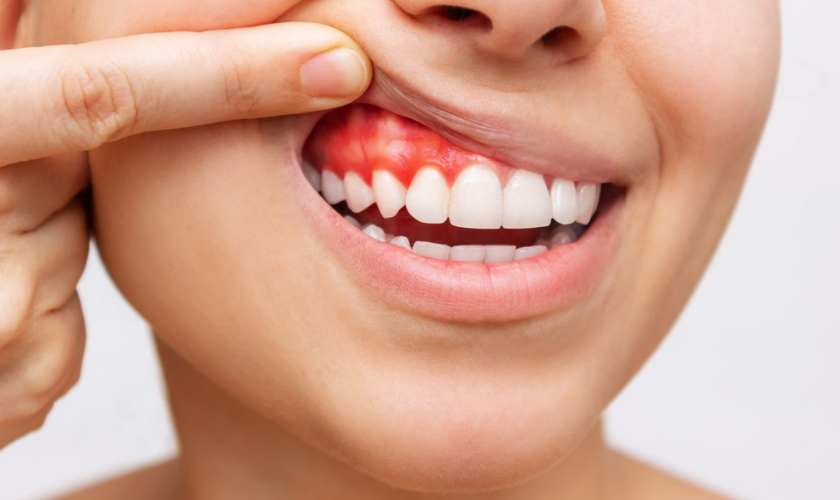
Periodontal therapy is a lifeline for those in the throes of gum disease. If you notice symptoms such as bleeding gums, persistent bad breath, or gum recession, you may be a prime candidate. Periodontal therapy intervenes, arresting the progression of the disease and promoting the regeneration of healthy gum tissues.
Preventing Tooth Loss
Beyond its role in treating gum disease, periodontal therapy is a guardian against tooth loss. Addressing the underlying causes, such as bacterial infection and inflammation, fortifies the foundation of your teeth. This, in turn, prevents the domino effect that could lead to the premature loss of teeth. As a result, it ensures that your smile remains intact.
Diabetics
The intricate connection between diabetes and gum disease makes periodontal therapy especially beneficial for individuals managing diabetes. By controlling and treating gum disease, this therapy contributes to better blood sugar management. It’s a dual victory – safeguarding oral health and positively impacting overall diabetic well-being.
Smokers and Tobacco Users

Tobacco use exacerbates the risk of gum disease and hampers the body’s ability to heal. Periodontal therapy is particularly beneficial for smokers, as it addresses the heightened susceptibility to gum issues. As a result, it offers a chance to break the cycle of deterioration and promote oral health.
Genetic Predisposition
Some individuals may find themselves more genetically predisposed to gum disease. Periodontal therapy serves as a vital tool in managing and mitigating the impact of genetic factors on oral health. By taking a proactive stance, it helps individuals overcome inherited challenges and maintain a resilient smile.
Benefits of Periodontal Therapy
Periodontal therapy offers a multitude of benefits, extending beyond oral health to positively impact overall well-being. Let’s explore the various advantages that individuals can gain from undergoing periodontal therapy:
Halting Gum Disease Progression: One of the primary benefits of periodontal therapy is its ability to halt the progression of gum disease. By addressing the underlying causes and eliminating bacterial plaque, the therapy prevents further damage to the gums, bones, and ligaments supporting the teeth.
Preventing Tooth Loss: Periodontal therapy serves as a robust defense against tooth loss. Treating gum disease and maintaining the health of supporting structures ensures the stability and longevity of teeth. Besides, it prevents premature tooth loss and preserves a functional and aesthetic smile.
Reduction of Gum Inflammation: Inflamed gums are a hallmark of gum disease. Periodontal therapy effectively reduces gum inflammation, alleviates discomfort, and enhances the overall comfort and health of the oral tissues.
Improving Oral Hygiene Awareness: Patients undergoing periodontal therapy receive valuable education on proper oral hygiene practices. Dental professionals guide effective brushing and flossing techniques and the importance of regular dental check-ups. This increased awareness empowers individuals to take control of their oral health.
Periodontal therapy goes beyond addressing immediate oral health concerns. It acts as a comprehensive solution, promoting systemic health, preserving teeth, and instilling habits that contribute to a lifetime of smiles. Embracing the benefits of periodontal therapy is an investment in both oral and overall well-being. Whether you’re fighting gum disease or safeguarding your overall well-being, this transformative therapy opens doors to a healthier, happier you. Embrace the power of periodontal therapy, and let your smile shine brighter than ever.

